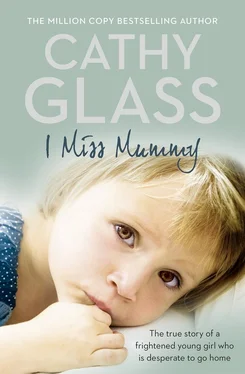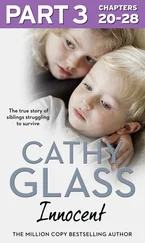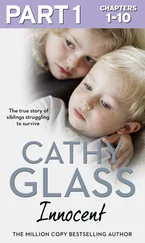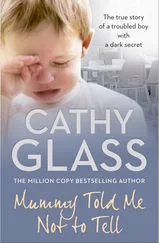‘I’m not sure. I think there were issues about the grandparents allowing Leah to see Alice.’
‘So Leah wasn’t allowed to see her own daughter?’ I asked, surprised. ‘That’s very unusual.’
‘Very,’ Jill said. ‘I don’t know the reason.’
I didn’t hear anything about Alice on Saturday, although I was half expecting to, hoping every phone call was to say Alice had been found safe and well. I had another restless night, listening for the phone or the doorbell as I had done the previous night. Jill had been right: an update to keep me in the picture, even if there was no news, would have been preferable to hearing nothing. I suppose I should have been used to not knowing, for foster carers are often left in the lurch and not included in the loop of information circulating among the professionals involved in a case. Although sharing information and keeping all professionals informed in childcare cases has improved since I first started fostering, largely because of the passing of the Children’s Acts, there is still a way to go. Often foster carers are bottom of the list when it comes to being kept informed, but when information is urgently required by a social worker about a child in care – for a report or court case – the carer is suddenly very popular, for we know the child better than anyone and have the information required to hand.
What I didn’t know at the time, but found out later, was that no one was being kept informed – not the social services, the grandparents, who were beside themselves with worry, the Guardian ad Litem, or any of the other professionals connected with Alice’s case – because of a ‘news blackout’. The police, fearful for Alice’s safety, were in sensitive, on-going and secret negotiations with her mother, via text messages, to try to persuade her to leave Alice in a public place where she could be collected.
Tired from two nights of little sleep and much anxiety, but determined to go to the party, at twelve noon on Sunday I changed out of my jeans and jumper and into a dress, stockings and high heels.
‘Blimey. Mum’s got legs,’ Adrian remarked dryly.
‘You look nice,’ Paula said.
‘Shall I do your make-up?’ Lucy asked, which I took as a compliment – that I was worth the effort and not beyond hope, as my tired reflection in the mirror sometimes suggested.
Half an hour later, all in our Sunday best, and me with a professionally applied mascara and eye shadow (Lucy wanted to be a beautician), and clutching a present and bottle of wine for the hostess, we piled into the car and headed up the M1. Once again I had left the answerphone on, and my mobile was in my handbag; if I was needed I could be home in twenty minutes. But it was true to say that my concerns for Alice had lessened during the morning because I was sure Alice must have been found by now and was with her grandparents, and that no one had thought to tell me. I simply couldn’t see how a mother with a young child could have avoided the police for all this time.
We had a really good time at the party and my mobile didn’t go off during the afternoon or evening. The house was overflowing with old friends and families with children my children knew. There was a disco in one room, and the older children kept the younger children entertained. There was plenty to eat and drink, although as I was driving I had only one glass of wine early on and then kept to soft drinks. We all enjoyed ourselves tremendously, but with school the following morning we said our goodbyes, as most other families did, just before 9.00 p.m., and we arrived home at 9.30.
As soon as I opened the front door and stepped into the hall I saw the light flashing on the answerphone, signalling a message. Close up, I saw that the indicator showed I had four messages. Without taking off my coat, and while Adrian, Paula and Lucy went through to the kitchen to get a glass of water each to take up to bed, I picked up the receiver and pressed play.
The first message was timed at 8.30 p.m., a male voice, stern sounding and quite terse: ‘Message for Mrs Glass. This is the out-of-hours duty social worker, please call me immediately on…I was informed you were to be the carer for Alice Jones.’ My heart missed a beat at the mention of her name, as the answerphone continued to the second message, timed at 8.47 p.m. It was the same male voice, now very impatient, almost demanding: ‘It’s the duty social worker again. I’ve already left a message. Would Mrs Glass phone immediately?’ He repeated the number and hung up. In his third message, timed at 9.05 p.m., I could hear his anger: ‘I’ve phoned twice. Alice has been found. Call me immediately.’ And in his last call, timed at 9.16 p.m., he was rude: ‘What the hell is going on!’ he demanded. ‘Where are you? You were supposed to be looking after Alice. Phone immediately. It’s not good enough!’ He hung up, the line went dead and the answerphone clicked off.
With my heart racing and my fingers shaking, I quickly took my mobile from my handbag and checked for messages and missed calls. There were none. If he was angry, I was upset, and my legs trembled. I prided myself on being a good carer, experienced and professional, and now it seemed I had failed in my duty.
Adrian, Lucy and Paula came into the hall, with a glass of water each, en route to their bedrooms. The colour must have drained from my face. ‘What’s the matter?’ Adrian asked. Lucy and Paula had stopped too and all three were looking at me, very concerned.
‘Alice has been found,’ I said, picking up the receiver, ready to dial. ‘The duty social worker has been trying to contact me for the last hour. But no one called my mobile.’
‘And you’re surprised?’ Lucy asked sarcastically, remembering her own experiences with the social services before coming into care. I shook my head. ‘I don’t understand it.’ Still in my coat, I quickly dialled the duty social worker’s number, as Adrian, Lucy and Paula continued upstairs to take turns in the bathroom. Not only was I upset by the duty social worker’s manner and rudeness, but he had made it sound my fault, as though I was solely to blame. Had I done wrong in going out for the afternoon and evening, even though I’d had my mobile on? Neither Jill nor the social worker had told me to stay at home; in fact no one had told me anything. But as I listened to the phone ringing, waiting for the duty social worker to answer, I knew the real reason I was upset was because I hadn’t been there for Alice. The poor child: whatever must she be thinking? I had badly let her down even before I’d met her.
Chapter Three
Stretched to the Limit
‘So you’re there, at last!’ the duty social worker snapped, finally answering the phone. ‘I’ve been trying to get you all evening. Alice has been found.’ I didn’t know the duty social worker and, as far I was aware, I hadn’t had any dealings with him before. He would probably be from an agency, covering out-of-office-hours calls.
Ignoring his gross exaggeration of ‘all evening’ – his first call had been timed at 8.30, fifty minutes before – I held my voice steady as I said: ‘I’m sorry you were unable to reach me. Why didn’t you phone my mobile?’
‘Wasn’t aware I had your mobile number,’ he said, no less tersely. Then, clearly having found it on the paperwork, he added dismissively: ‘Oh yes, but it’s not obvious. At least you’re there now.’ I thought an apology wouldn’t have gone amiss but, aware Alice was waiting somewhere, waiting to be brought to me, I didn’t pursue it. ‘The child is at the police station,’ he said. ‘I’ll have to bring her to you, but it won’t be straight away. I’m stretched to the limit here.’
‘Do you want me to collect Alice from the police station?’ I offered.
Читать дальше












